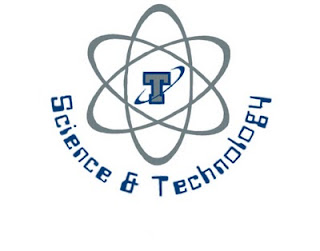
Science, Technology and Society (STS) is an interdisciplinary field that studies the conditions under which the production, distribution and utilization of scientific knowledge and technological systems occur; the consequences of these activities upon different groups of people. The Society for Social Studies of Science members also include government and industry officials concerned with research and development as well as science and technology policy; scientists and engineers who wish to better understand the social embeddedness of their professional practice; and citizens concerned about the impact of science and technology in their lives.
We have more than 40 faculty affiliates across Tufts University—from anthropology, biology, classics, education, engineering, history, mathematics, music, philosophy, physics, political science, urban and environmental policy and planning, and many more.
The Science, Technology, and Society (STS) program supports research that uses historical, philosophical, and social scientific methods to investigate the intellectual, material, and social facets of the scientific, technological, engineering and mathematical (STEM) disciplines.
The reason is that people need to recognize that there are people who are affected by the science and technology. STS senior Haley Andonian delves into how this major explores the intersection of the sciences and humanities. Our A.S. degree in Environmental Science gives you options to study water resource management or environmental resources conservation.
Electromagnetism
anonymous,uncategorized,misc,general,other
19 Bold Predictions For Science And Technology In 2019
AACC promotes engagement and success in science, technology, engineering and math across the college, but especially within the School of Science and Technology.
science technology and society jobs, science technology engineering and mathematics education, science technology engineering and mathematics definition, science technology engineering arts and mathematics logo
Program In Science, Technology, And Society
If you’re driven by discovery and innovation, NYU offers world-class programs in the sciences, technology, engineering, and mathematics. The program’s primary aim is to build bridges between the two cultures of science and the humanities and to develop a common language so that they can better understand and speak to one another-and ultimately to grasp that they belong to a single common culture.
Similarly, in the education sector too, the impact of the developments in science and technology is highly commendable. The Asia Pacific Science Technology & Society Network (APSTSN) 5 primarily has members from Australasia, Southeast and East Asia and Oceania.
Science, Technology, Engineering, & Math

The evolution of science is like a boon to the world, as human beings come to know a lot about the world they are living in including the activities they indulge into. It is therefore critical to understand how we may be able to best realize the potential of science and technology in improving the human condition, underpinning economic and social development, supporting human endeavors, and promoting international relations, being cognizant of and addressing societal concerns that often accompany such advances.
In Northeast Florida alone, there are more than 30 environmental companies as well as a similar number of governmental agencies like the EPA, Army Corps of Engineers and the Department of Energy looking for gifted people with environmental science degrees.
science technology and society upenn, science technology engineering arts and mathematics at legacy high school complex, science technology and society cal poly pomona
There are gender differences in learning styles specific to science, math, engineering and technology (STEM) that teachers of these subjects should keep in mind when developing lesson plans and teaching in the classroom. A minimum of 3 courses in a chosen focus track (Science; Technology; Medicine). Technosocial systems 38 – people and technologies that combine to work as heterogeneous but functional wholes. Science and technology have important connections to literature, philosophy, religion, art, economics, and to social and political history.
